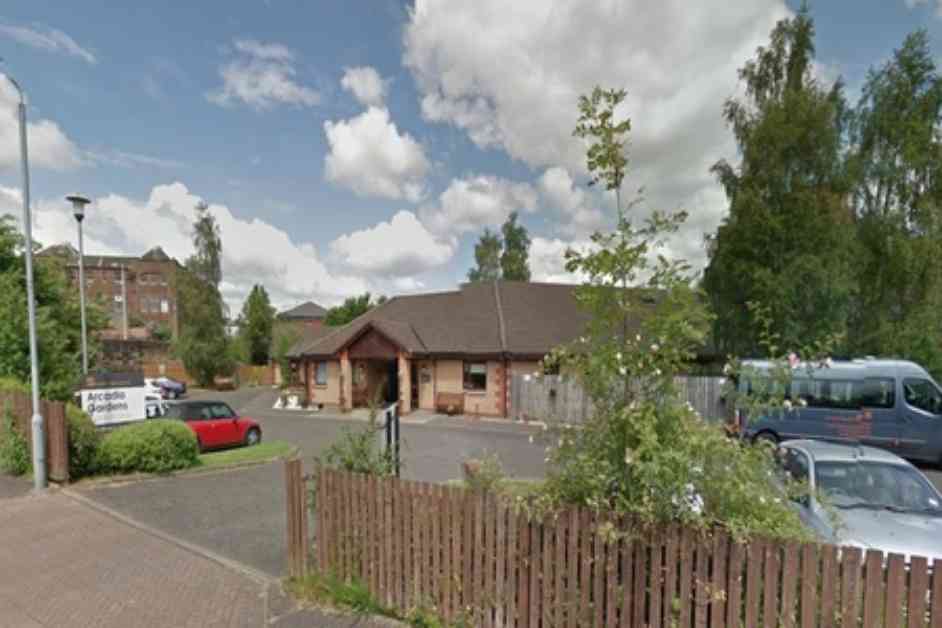A tragic incident at a care home in Glasgow has resulted in a hefty fine of £500,000 for health and safety failings that led to the death of a 54-year-old woman. Carol Hughes passed away on March 25, 2017, following a fire at the Arcadia Gardens home in Bridgeton, operated by HC-One Ltd.
In the weeks leading up to the fire, Ms. Hughes, a smoker, had begun spending extended periods in her bed. Unfortunately, the fire that took her life started in her room, likely ignited by bed linen or her clothing, with a lighter and an e-cigarette found on the bed, and another lighter nearby. It was revealed during the investigation by the Crown Office and Procurator Fiscal Service (COPFS) that the change in Ms. Hughes’ circumstances should have prompted the care home to provide her with smoking materials while she was bed-bound. However, a review was not conducted, and appropriate control measures were not implemented.
The failure to identify and address these risks meant that preventive measures such as monitoring Ms. Hughes while she smoked could have potentially averted the tragic outcome. Furthermore, the fire detection system initially misidentified the origin of the fire as coming from the kitchen and laundry area, instead of the resident’s room. Subsequent examination of the system revealed inaccuracies in the zone chart, with Ms. Hughes’ room displaying on the indicator panel as part of zone 6, while the chart designated it as zone 12.
This discrepancy in the zone allocation hindered staff from promptly responding to the fire in Ms. Hughes’ room. Despite the delay not being directly responsible for her death, the smoke build-up in the corridor prevented staff from accessing her room to evacuate her. Ultimately, firefighters had to intervene, but tragically, Ms. Hughes passed away the following day.
HC-One Limited, the care home operator, pleaded guilty to charges under the Health and Safety at Work etc. Act 1974 and was fined £500,000 along with a Victim Surcharge of £37,500. Debbie Carroll, who heads health and safety investigations for the COPFS, emphasized that Ms. Hughes’ death could have been prevented if proper risk assessments had been conducted, and the fire alarm detection system had been maintained to accurately identify the location of the fire.
This case serves as a stark reminder of the critical importance of ensuring the safety and well-being of residents in care homes. It underscores the accountability that care home operators bear in safeguarding their residents and the consequences they may face if they fail to do so.
Ensuring Resident Safety: The Role of Care Homes
The primary responsibility of care homes is to provide a safe and secure environment for their residents, particularly those with specific needs or vulnerabilities. In the case of Carol Hughes, a smoker who was bed-bound, the care home should have taken proactive measures to address the increased risk associated with her smoking habits.
Smoking materials should have been made available to Ms. Hughes in her room, and staff should have been vigilant in monitoring her while she smoked to prevent any potential fire hazards. By neglecting to assess and mitigate these risks, the care home failed in its duty to protect Ms. Hughes’ health and safety, resulting in a tragic loss of life.
It is essential for care homes to conduct regular risk assessments for all residents, especially those with unique requirements or conditions. By identifying potential hazards and implementing appropriate control measures, care homes can prevent accidents and ensure the well-being of their residents.
Importance of Fire Safety Measures
The devastating consequences of the fire at Arcadia Gardens highlight the critical importance of robust fire safety measures in care homes. Fires can spread rapidly in enclosed environments, posing a significant risk to residents who may have limited mobility or other vulnerabilities.
Proper fire detection systems, including smoke alarms and heat detectors, are essential for early detection of fires and prompt evacuation of residents. In the case of Ms. Hughes, the failure of the fire alarm detection system to accurately pinpoint the location of the fire delayed the response, ultimately contributing to her tragic death.
Care homes must ensure that their fire safety equipment is regularly maintained and tested to guarantee its effectiveness in the event of an emergency. Staff should receive comprehensive training on fire safety procedures, evacuation protocols, and the use of firefighting equipment to respond swiftly and effectively in crisis situations.
Accountability and Legal Ramifications
The legal proceedings against HC-One Limited and the subsequent fine of £500,000 underscore the accountability that care home operators hold in ensuring the safety of their residents. Negligence in upholding health and safety standards can have severe consequences, as evidenced by the tragic outcome of the fire at Arcadia Gardens.
Care home operators must comply with regulatory requirements and industry standards to safeguard the well-being of residents and prevent avoidable accidents. Failure to do so can result in legal action, financial penalties, and reputational damage, highlighting the importance of prioritizing health and safety in care home settings.
In conclusion, the case of Carol Hughes serves as a poignant reminder of the critical importance of prioritizing resident safety in care homes. By conducting thorough risk assessments, implementing effective fire safety measures, and upholding compliance with regulations, care home operators can create a secure environment for residents and prevent tragic incidents like the one that occurred at Arcadia Gardens. It is imperative that lessons are learned from this tragedy to prevent similar occurrences in the future and ensure the well-being of vulnerable individuals in care settings.
































